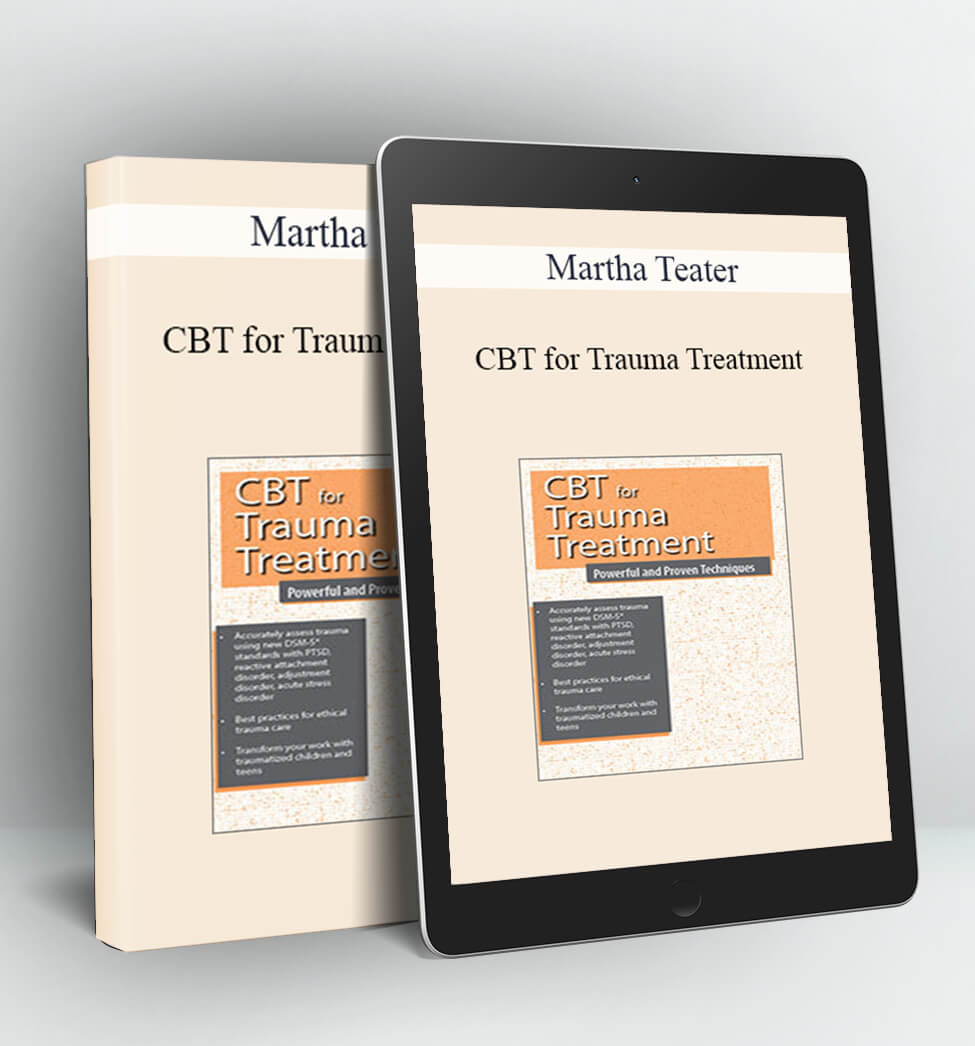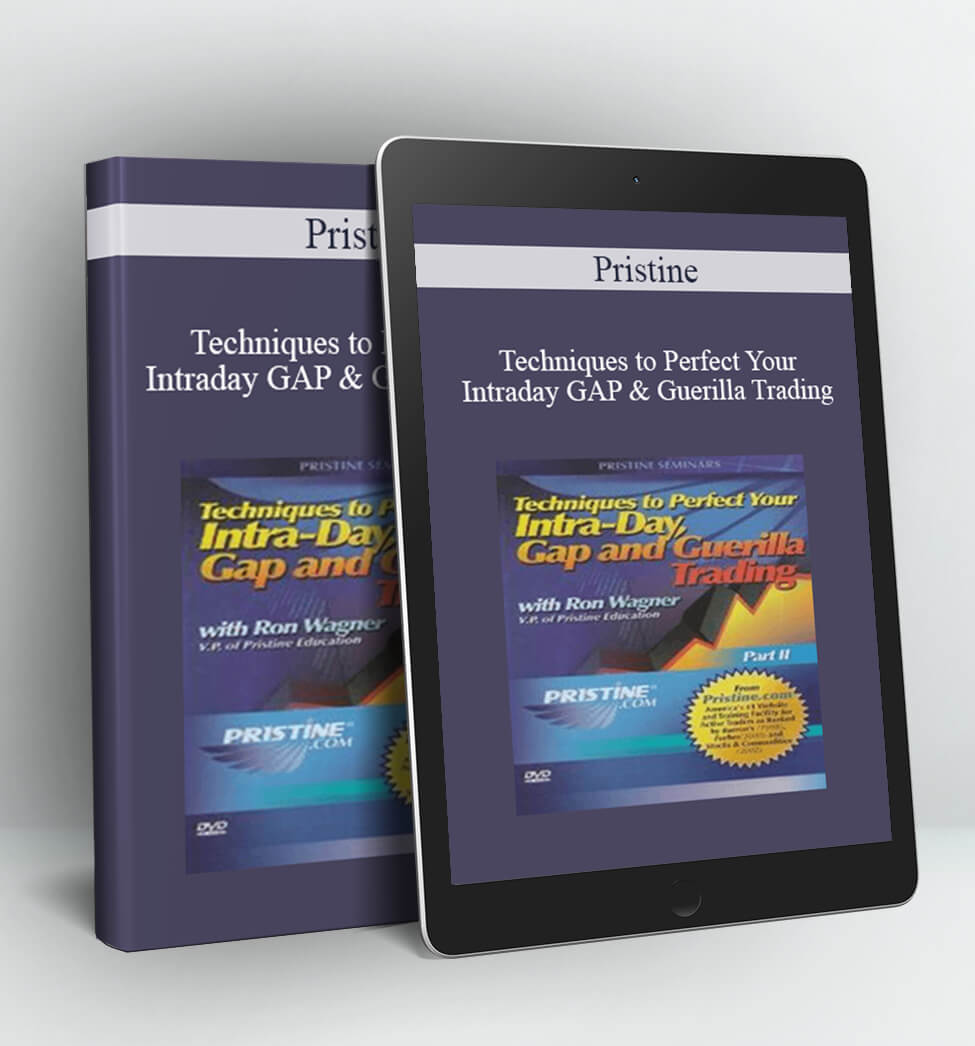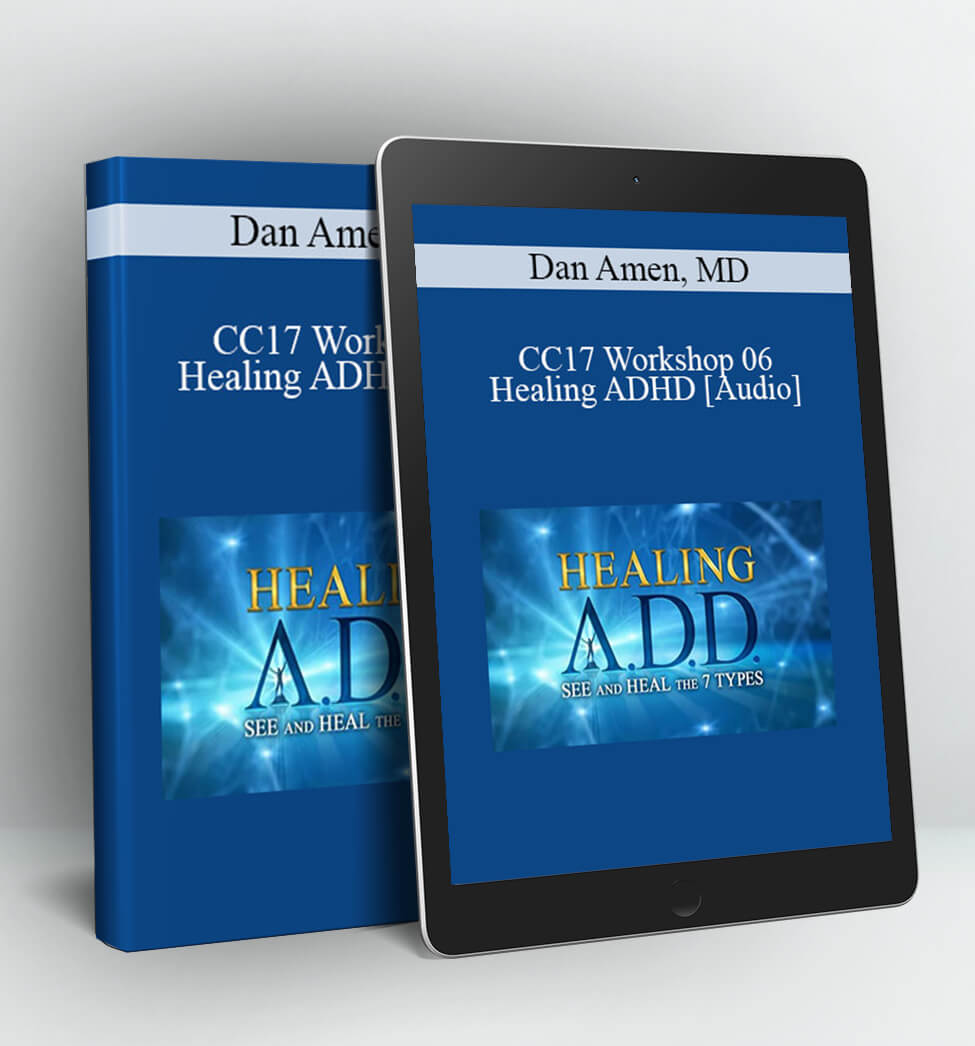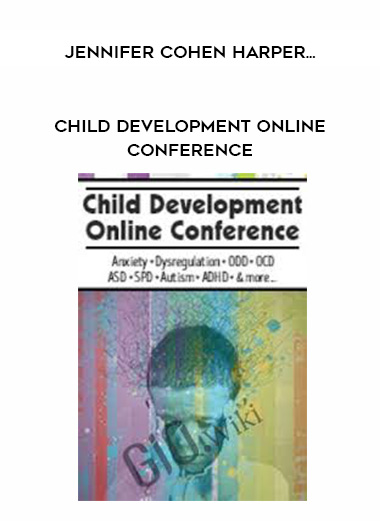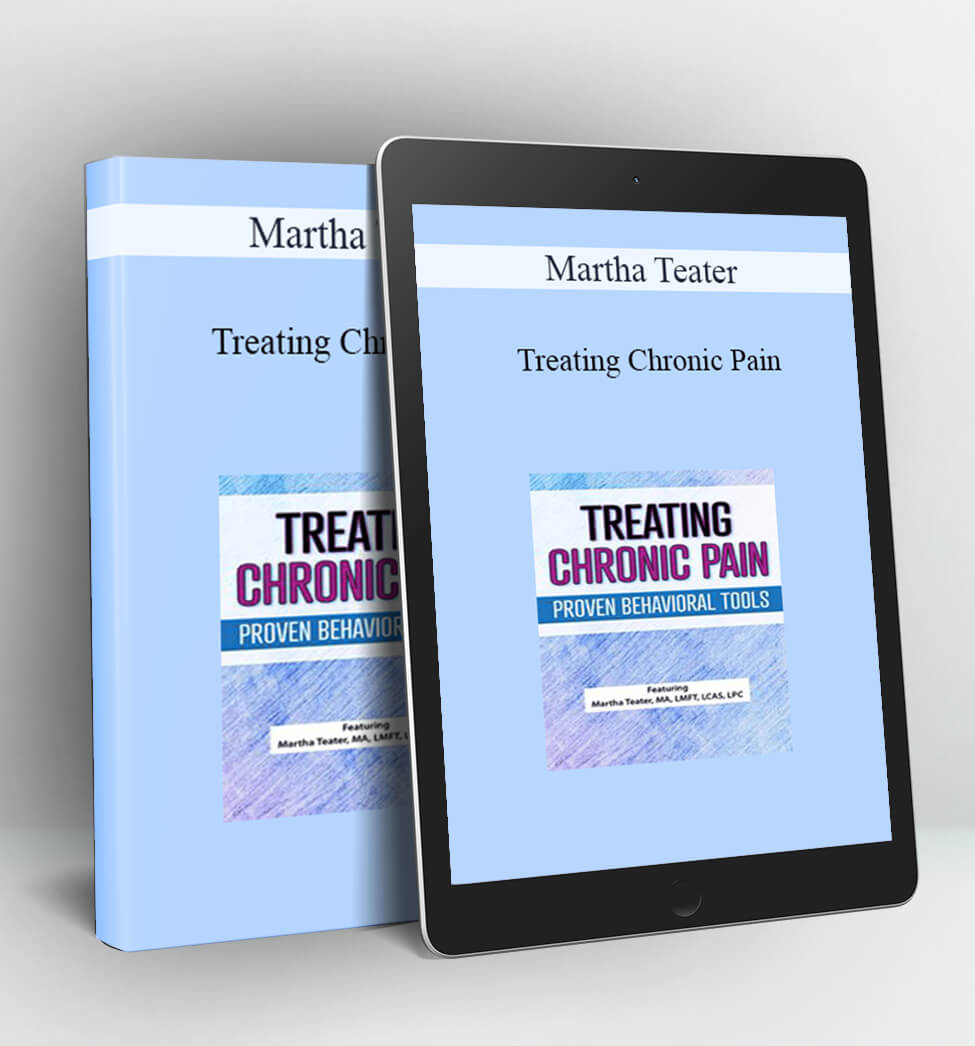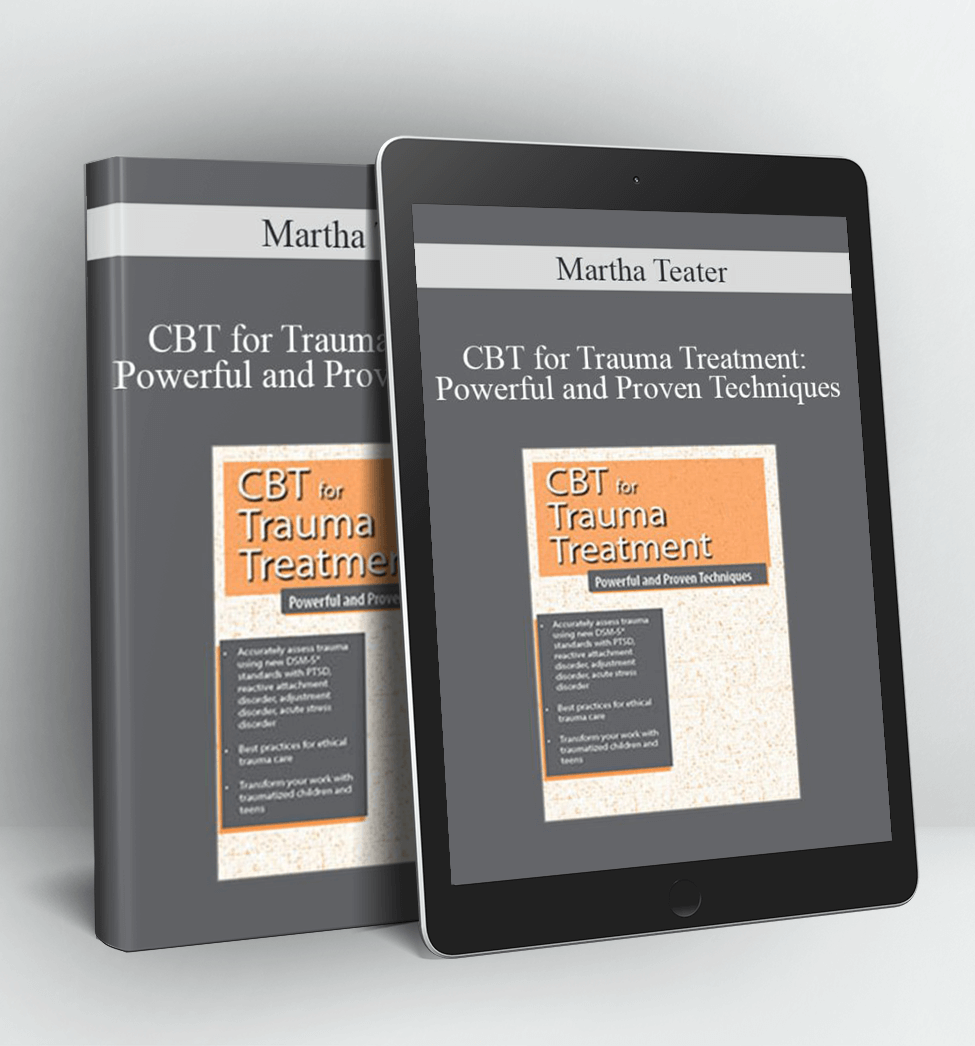
CBT for Trauma Treatment – Martha Teater
- Faculty:
- Martha Teater
- Duration:
- 5 Hours 33 Minutes
- Format:
- Audio and Video
- Copyright:
- Dec 16, 2015
Description
- Accurately assess trauma using new DSM-5® standards with PTSD, reactive attachment disorder, adjustment disorder, acute stress disorder
- Best practices for ethical trauma care
- Transform your work with traumatized children and teens
Treating people who’ve gone through traumatic experiences can be a challenge. You may feel profound empathy, but without targeted skills your outcomes may be lackluster.
Confronting the avoidance that comes with trauma is a highly effective intervention with a solid research base. The benefits of CBT are powerful, both short-term and long-term. Learn the most advanced, specialized, and evidence-supported techniques for treating trauma.
This training will equip you with CBT tools that you can use immediately to help people with traumatic experiences. Build your confidence in helping people reduce avoidance, modify cognitive distortions, and expose themselves to feared thoughts and situations.
Transform your work by using proven CBT strategies. Arm yourself with tools that will dramatically improve the lives of the people you are treating in the aftermath of trauma. You will learn practical CBT interventions that work from assessment to aftercare.
Gain expertise in using the new DSM-5® for trauma-related diagnoses. Decide what screening and assessment tools are the best fit for your needs. Learn what works best for children and teens. Know how to approach people with substance use issues and trauma. Become an expert in ethical trauma care.
Gain skills and know that your ability to assess and treat trauma is based on powerful strategic interventions. Sharpen your treatment of trauma with proven approaches that have a solid track record of success. These takeaways will make you a strong and effective clinician with cutting-edge trauma treatment skills.
Handouts
| Manual (2.17 MB) | 88 Pages | Available after Purchase |
Outline
Assessing trauma
- DSM-5® category of Trauma and Stressor-Related Disorders
- What’s different in how we diagnose trauma
- Disinhibited Social Engagement Disorder
- 4th PTSD symptom cluster: negative cognitions and mood
- Large-T vs. small-t trauma
- Evaluating complex trauma
- Innovative screening and assessment tools
Risk and resilience
- Features that raise and lower the risk of trauma consequences: Pre-traumatic, Peri-traumatic, Post-traumatic
- Protective factors that reduce risk: Biological, Psychological, Social, Environmental
Post-traumatic growth
- Positive change as a result of trauma
- Thriving, not just surviving
- Changes in 3 areas
- Enhanced relationships
- Changes in view of self
- Shifts in life philosophy
- Vicarious resilience
- The surprising benefits of witnessing the growth of survivors
The Three-Stage Consensus Model
- Stabilization: Safety and strength-building
- Reprocessing: Reappraising traumatic thoughts
- Reintegration: Putting it all together
Evidence-based CBT practices
- Tailoring treatment to the specific needs of your client
- Powerful CBT strategies that work
- Overcoming avoidance
- Effective exposure techniques
- Modifying cognitive distortions
- Advanced uses of CBT with trauma
- Imaginal and in vivo exposure techniques
- Effective homework and handouts for rapid improvement
- Addressing ambivalence
- Practical applications using proven CBT tools
- Automatic negative thoughts
- Negative cognitive triad
- Thought distortions
- Evidence review
- Decatastrophizing
- Stress Inoculation
Trauma and children
- Trauma-Focused CBT to help children, youth, and families
- Innovative child-focused CBT strategies
- Adverse Childhood Experiences (ACE) Study and the impact of childhood trauma on adult functioning
- Video: Using ACE scores to impact the next generation
Substance use disorders and trauma
- Innovative treatment for dually-diagnosed
- CBT tools for overcoming addictions and co-occurring trauma disorders
- Tolerating urges, cravings, and discomfort
- Enhancing motivation
- Cost/benefit analysis
- Behavioral rehearsal with high-risk situations
- Identifying thought distortions that increase use
- Integrated approaches to reduce relapse rates
- Common features in substance use disorders and PTSD
The ethical benefits of building trauma-informed organizations
- Creating a practice niche based on ethical trauma care
- Developing a consultation model to intervene with high-risk groups
- Helping organizations become trauma-informed to protect both staff and clients
Ethics in trauma work
- Green Cross Academy of Traumatology guidelines for ethical interventions
- International Society for Traumatic Stress Studies best practice parameters
- Recovery Bill of Rights for Trauma Survivors
- The ethical mandate of provider self-care: know your code of ethics
- Compassion fatigue: Reduce your risk
Faculty

Martha Teater, MA, LMFT, LCAS, LPC Related seminars and products: 6
Martha Teater, MA, LMFT, LCAS, LPC, is a Diplomate with the Academy for Cognitive Therapy and is a practicing cognitive-behavioral therapist. She has maintained a private practice since 1990 and has worked in primary care settings, free clinics, and medication-assisted treatment programs. Martha is a Red Cross disaster mental health manager and has been on many national disaster deployments where she provides support to traumatized people. She is also involved with the Red Cross Service to the Armed Forces to develop programs to support military and veteran families.
She has provided trainings in the United States and internationally on topics such as evidence-based treatments for trauma, DSM-5®, compassion fatigue, and behavioral treatment of chronic pain. A prolific writer, Martha has published over 175 articles in newspapers and magazines, including Psychotherapy Networker and Family Therapy Magazine. Martha is the co-author (with John Ludgate) of Overcoming Compassion Fatigue: A Practical Resilience Workbook (PESI, 2014) and (with Don Teater) Treating Chronic Pain: Pill-Free Approaches to Move People from Hurt to Hope (PESI, 2017).
Speaker Disclosures:
Financial: Martha Teater maintains a private practice. She receives a speaking honorarium from PESI, Inc.
Non-financial: Martha Teater is a Clinical Member of the American Association for Marriage and Family Therapy.
Access Download CBT for Trauma Treatment – Martha Teater right now!
Delivery Method:
After your purchase, you’ll get access to the downloads page. Here, you can download all the files associated with your order.
Downloads are available once your payment is confirmed, we’ll also send you a download notification email separate from any transaction notification emails you receive from Coursedownloads.

